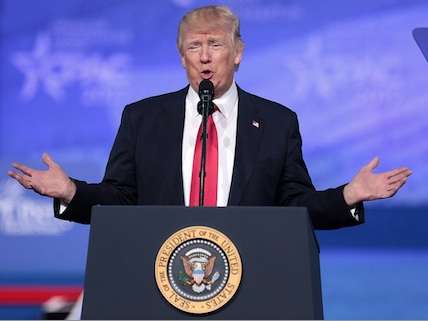Trump's Executive Order on Sanctuary Cities Flunks the Constitutional Test
Why the Trump administration lost in federal court.

A federal judge in California recently declared President Donald Trump's executive order denying federal funding to so-called sanctuary cities to be unconstitutional. According to the opinion of U.S. District Judge William Orrick in Santa Clara v. Trump, and the related case of San Francisco v. Trump, the president's order violates multiple constitutional strictures, including the 10th Amendment and the separation of powers.
In a new op-ed for The Orange County Register, I explain why the judge got it right. Trump's executive order clearly violates the Constitution in several ways. Here's a portion of my argument:
The Trump administration may not want to hear it, but sanctuary cities are protected by both the Constitution and Supreme Court precedent. For starters, as the late Justice Antonin Scalia explained in Printz v. United States (1997), "the Federal Government may neither issue directives requiring the States to address particular problems, nor command the States' officers, or those of their political subdivisions, to administer or enforce a federal regulatory program."
In other words, Trump's executive order flunks the 10th Amendment test that Scalia spelled out in Printz. State and local officials have every right to refuse to enforce federal immigration laws….
Trump's executive order [also] flunks the text of the Constitution itself, which, as Judge Orrick points out, "vests the spending powers in Congress, not the President."
Open your copy of the Constitution. You will find that the federal spending power is located in Article I, Section 8, which deals with the limited and enumerated powers of Congress. The limited and enumerated powers of the president are spelled out in Article II.
What this means is that Trump's executive order on sanctuary cities seeks to usurp a core congressional function. That makes it an unconstitutional violation of the separation of powers.
Read the whole thing here.


Show Comments (22)